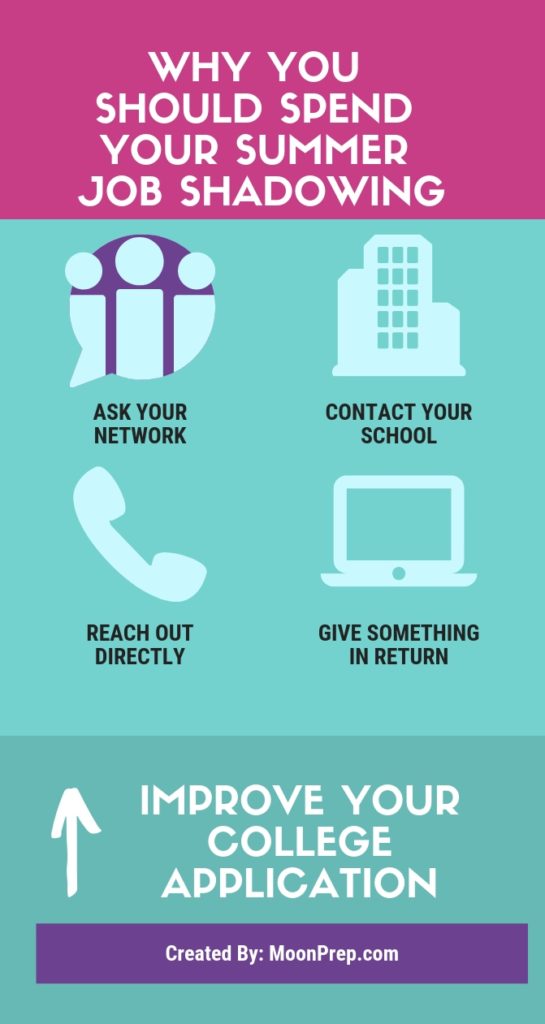
Summer is officially here, and pro-active college and high school students are likely looking for a way to make the time off school more productive. You might want to find a way for your college application to stand out from a crowded field, or gain real-world experience.
For students who can spend a few weeks investing in unpaid job shadowing, it is an excellent way to elevate your college application and learn more about what future career path might be best for you.

What Is Job Shadowing?
Job shadowing is when you spend a week, or even a few weeks, observing a professional working in their day-to-day position. Through shadowing, you gain hands-on knowledge, which can help you narrow down what academic field or career you want to pursue.
As a high schooler, it can be particularly beneficial. It demonstrates to colleges that you not only want to become a doctor, engineer, or architect but that you took the initiative to explore the field further. Regardless of whether you are in college or high school, it shows ambition and resourcefulness to colleges and future employers.
Use Your Network
You might think it is hard or inconvenient to find a job shadowing experience, but that is a misconception. Many of the best opportunities are not found on a job board, but instead, are right in front of you.
For example, if you dream of becoming a physician, you could consider reaching out to your local family doctor or pediatrician. Likely, you already have a relationship with them, and if you explain your aspirations and that you would like to learn from her, your doctor might be willing to take you under her wing.
Check With Your School
Your school might have connections with different companies who encourage job shadowing. Ask your academic advisor, counselor, or someone in the career office for a list of willing organizations. Even if you aren’t sure where you would like to do your job shadowing, they can assist by pointing you in the right direction.
Reach Out Directly
If you have a dream job or organization that you know of and no connections to that community, try to reach out to the company directly. You can call or email someone in the human resources department. Mention that you are an interested student who wants to learn more about the career and would like to job shadow. Have specific reasons why you want to shadow at that particular company.
Give Something In Return
When reaching out to your network, emphasize the value that you can help bring to the company. Perhaps you are strong at social media or graphic design. Tell the doctor that you can help with social media marketing or assist an employee with new social media ideas. Try to make job shadowing mutually beneficial and form a deeper connection.
Don’t be turned off by the career entirely if you have a poor job shadowing experience. Remember, you only spent a short time at the company, and it does not represent the career as a whole. Even people with similar job titles can do completely different tasks. If this happens, try to set up another job shadow experience to determine for sure if the career path isn’t right for you.
Job shadowing is an excellent way to see professionals in the workforce and decide what career is right for you. During your job shadowing, you might also meet future mentors who can help guide you throughout your academic career. Make the most of this experience and help supercharge your college application.
*Kristen Moon is an independent college counselor and founder of MoonPrep.com. Moon Prep provides one-on-one tutoring services catered to university admissions. They guide students through the entire application process including: completing applications, personal statements, supplemental essays, student resumes, scholarships, and financial aid. Their specialty lies in the Ivy League, direct medical programs (BS/MD), and highly competitive universities.



